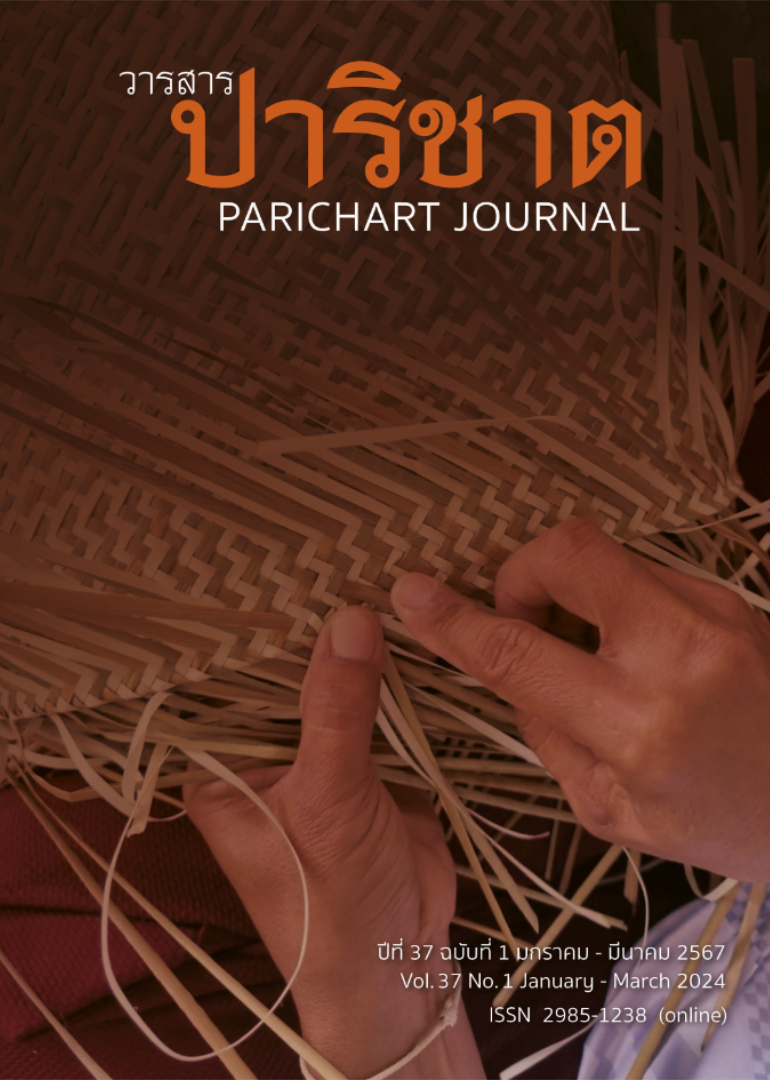Intercultural Competence of Ethnic Novice Students In Phrapariyattidhamma Schools
Main Article Content
Abstract
The purpose of this quantitative research was to study and compare the intercultural competences (intercultural attitudes, intercultural knowledge, intercultural skills, and intercultural communication behavior) of novice students in Phrapariyattidhamma Schools in Phayao Province with different ethnic groups, educational levels, and Dharma scholar levels. Deardorff’s pyramid model of intercultural competence (2004) and process model of intercultural competence (2006) were employed as conceptual frameworks. A questionnaire was used to collect data from all novice students who were enrolled across four Phrapariyattidhamma Schools during the academic year 2021. This study encompassed a total of 397 participants. The statistics used for data analysis included descriptive statistics (frequency, percentage, average, and standard deviation) and inference statistics (independent sample t-test and one-way ANOVA). The result showed that the overall intercultural competence of novice students was at a high level (=3.47), which consisted of the element of intercultural communication behavior (
=3.63) and intercultural attitude (
=3.52) which were at a high level, as well as intercultural knowledge (
=3.39) and intercultural skills (
=3.35) which were at a moderate level. Moreover, the hypothesis testing showed that (a) intercultural competence of novice students was not varied by different ethnic groups, and (b) intercultural communication behavior was varied according to different educational levels, at a statistically significant level at 0.05. Similarly, (c) intercultural competence of novice students was varied according to different Dharma scholar levels, with a statistically significant level at 0.05.
Article Details

This work is licensed under a Creative Commons Attribution-NonCommercial-NoDerivatives 4.0 International License.
References
Ramirez, R. E. (2016). Impact On Intercultural Competence When Studying Abroad and The Moderating Role of Personality. Journal of Teaching in International Business, 27, 88-105. https://doi.org/10.1080/08975930.2016.1208784.
Wolff, F., & Borzikowsky, C. (2018). Intercultural Competence by International Experiences? An Investigation of The Impact of Educational Stays Abroad on Intercultural Competence and Its Facets. Journal of Cross-Cultural Psychology, 49(3), 488-514. https://doi.org/10.1177/0022022118754721.
Opassatian, K., Polsaram, A., & Kaemkate, A. (2020). Development of Intercultural Competency Indicators of Faculty in International Program. Saengtham College Journal, 12(2), 50–67.
Deardorff, D. K. (2015). How to Assess Intercultural Competence. In Zhu Hua (Ed), Research Methods in Intercultural Communication: A Practical Guide, (pp.120-134). Wiley-Blackwell.
Subcommittees for The General Buddhist Education. (2014). Manual for the General Buddhist Education. (1st ed.). National Office of Buddhism Press. https://www.onab.go.th/th/ebook/category/detail/id/1/iid/94. (in Thai)
Committees for the General Buddhist Education. (2015). General Buddhist Educational Curriculum B.E. 2558 (A.D. 2015) According to The Basic Education Core Curriculum B.E. 2551 (A.D.2008), Buddhism and Pali Language Subject Area. (in Thai)
Jandeang, B. (2019). Factors Affecting Drug Risk Behavior of Secondary School Students in The Boundary Area of the Mekong Basin. Journal of Research and Development Institute Rajabhat Maha Sarakham University, 14(3), 424-432. (in Thai)
Kim, Y. Y. (2001). Becoming Intercultural: An Integrative Theory of Communication and Cross-Cultural Adaptation. Sage Publications.


